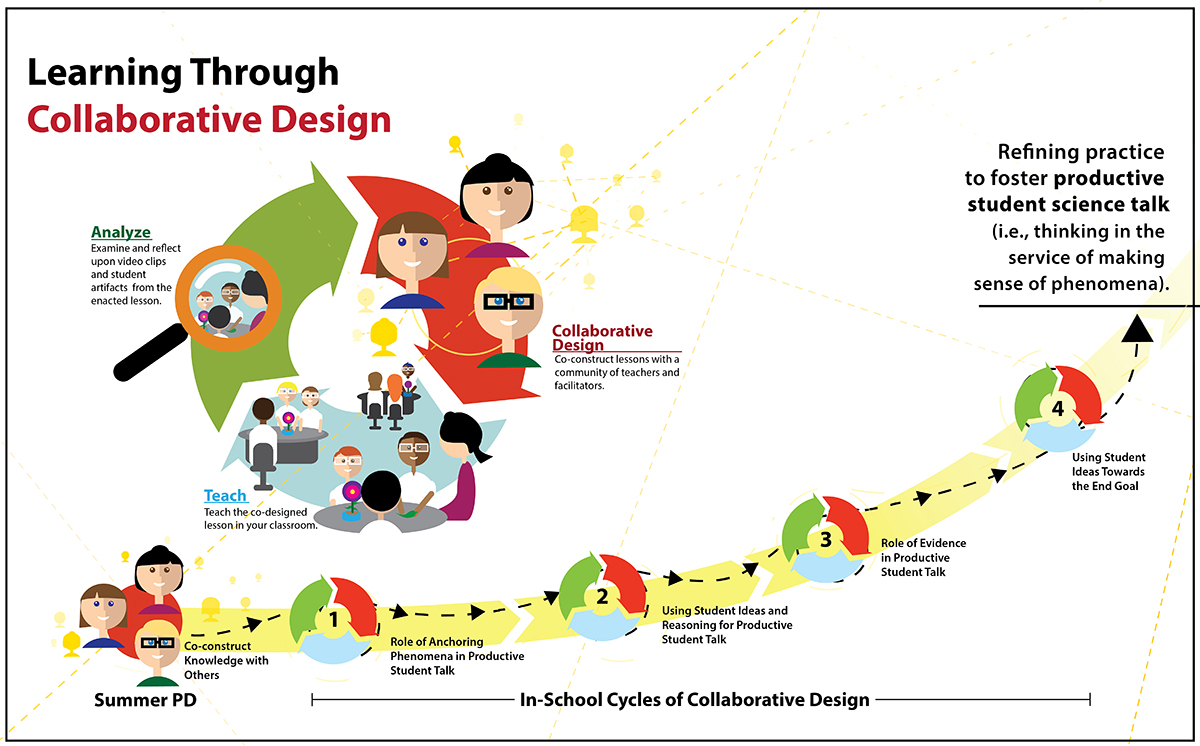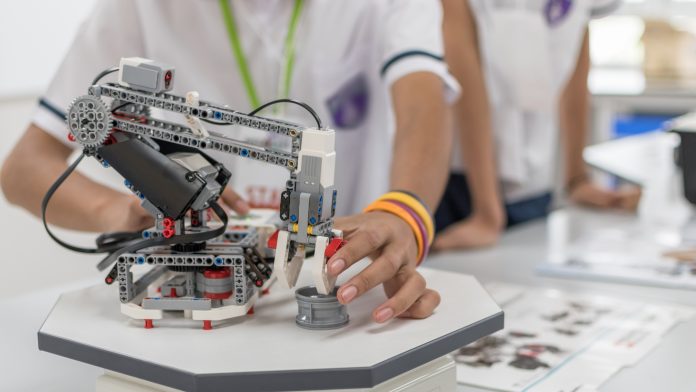Sherry A. Southerland and Jennifer Schellinger tell us what we need to know about Learning Through Collaborative Design-Professional Development (LCD PD) in this special science education focus
Imagine walking into a classroom where students are working together to make sense of the problem posed at the outset of a lesson on sexual selection, “What accounts for the colour of guppies?”. You observe students’ wonderment, frustration, joy, and even, nervousness as they work together to develop evidence-based claims about what is happening and why it is happening as they explore the data set related to the guppies and the pools in which they live.
Students’ emotions arise because they are actively grappling with one another’s ideas about different factors that may shape the population’s traits.
Science as a process of ‘figuring things out’
When science lessons are framed as spaces for students to ‘figure things out’ they open up opportunities for students to engage deeply and meaningfully with scientific concepts and practices, framing that aligns with science education reform efforts in the United States. These reforms suggest that students’ learning is fostered through sense-making and socially negotiating their ideas about scientific phenomena – a vision that pushes against prevalent traditional classroom instruction and one that requires a fundamental shift in instruction.
Science education researchers, leaders in professional development, and science educators from Florida State University and Georgia State University have formed the Learning through Collaborative Design Professional Development project (LCD PD). This project, funded by the National Science Foundation, is designed to support teacher practice that frames students thinking and learning as a process of ‘figuring out’ through productive epistemic talk – more colloquially termed ‘science talk’.
Engaging students in productive science talk can seem foreign or challenging for many teachers, however, the practices that support students’ science talk can be learned and refined. However, this learning and refinement require new approaches to PD, approaches that do not just introduce new curriculum to teachers, as all teachers must interpret the curriculum that they are given.
Because of this, what is called for are approaches that promote teachers’ learning about and enactment of productive science talk as they employ curriculum. LCD PD seeks to understand the role of a specific type of PD approach – collaborative design – in providing teachers with the skills to engage students in sense-making in biology through talk and to provide the field with valuable insight into effective models for science teacher PD.
Project focus
A key focus of LCD PD is to (1) engage teachers as students in science activities and then unpack pedagogy that underpins them so they can better consider how the student experience can be leveraged to support talk in science classrooms and (2) to help teachers design, analyse, and refine their practice in collaboration with their peers. During Phase 1 of the project, a model of PD that supports this focus was developed and refined to position teachers to collaboratively design, implement, analyse, and redesign lessons to support student science talk. See Figure 1 for a visualisation of the PD.
Research from Phase 1 of the project identified effective PD ‘Science Talk’ design principles (i.e., attending to the kinds of PD activities employed, modelling effective practices to support talk, and maintaining a balance in activities that frame teachers work as doing as a student and reflecting as a teacher), key instructional components that maintain high-level student thinking (i.e., rigorous tasks and continual teacher presses across the arc of a lesson), and the impact that framing and teacher moves have on student learning through talk.
During Phase 1 of the project, the team designed, implemented, and refined the PD in two school districts in the South-eastern United States across two years. LCD PD remains embedded in these districts and continues to support and longitudinally follow teachers involved in the first phase.
The field test
Phase 2 of the project, the field test, will compare the impact of the LCD PD model to a Learning through Participation in Classroom Activity (LPCA) PD model and a control group. Both the LCD and LPCA models of PD support teachers’ learning about the importance of and how to foster science talk, where students conduct investigations while thinking through and reasoning about the results of those investigations and how to communicate them.

Figure 1. The Learning through Collaborative Design Professional Development model
In both models, teachers engage in a summer institute and in-school cycles of PD. The difference between these groups is the sort of activities employed to support teacher learning during the PD. The LCD PD summer and in-school cycles provide opportunities for teachers to collaborate with colleagues to redesign lessons with the goal of fostering students’ productive science talk.
In contrast, the LPCA summer and in-school cycles of PD provide opportunities for teachers to explore ways to support students’ productive science talk, but without the collaboration around the redesign of materials. The control group will participate in a Results-Based PD the year following the study and will supply classroom data around the four lessons that the LCD and LPCA PD models focus on during the academic year.
Future initiatives
Research findings resulting from the LCD PD project are currently in the works. Please check back at www.openaccessgovernment.org next year or visit our website at https://lcdpd.education.fsu.edu/ to keep abreast of these findings or to learn more about the project.
This material is based upon work supported by the National Science Foundation Grant No. 1720587
Co-PIs
Ellen Granger, Lama Jaber, Miray Tekkumra Kisa,
Zahid Kisa, Patrick Enderle, Todd Bevis
*Please note: this is a commercial profile











